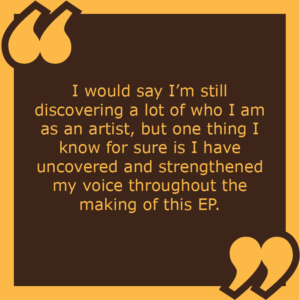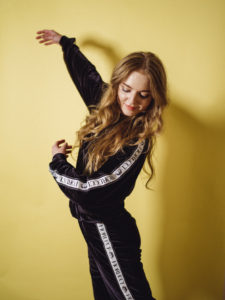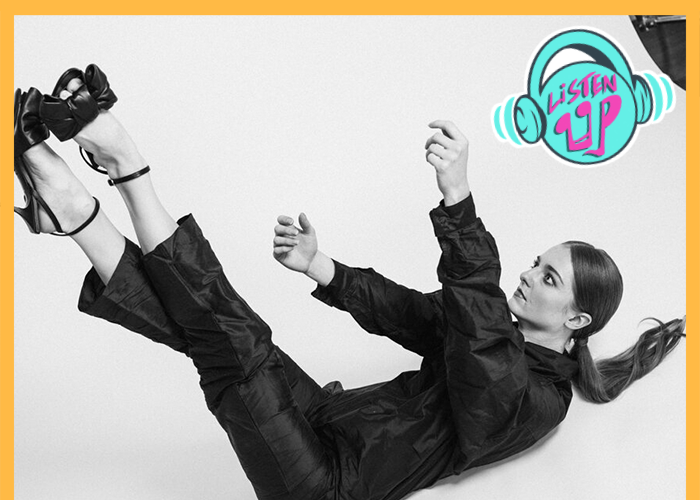
As an artist who believes in writing about real emotions and experiences, Chelsea Pribble poured herself into her debut EP, Second Movement, facing her own ups and downs head on through the lyrical truths embedded in her songs. As the pandemic of 2020 came into focus, she turned back to songwriting, reshaping her anxiety into creative fuel.
“I think the best times for me to create are when my emotions are heightened and I have the space and time to do so,” she said in an exclusive interview with TrunkSpace. “The isolation and a lot of the fear centered around the pandemic pushed more feelings to the surface for me.”
We recently sat down with Pribble to discuss self-doubt, the impact of music, and why she chose to step back in promoting Second Movement shortly after its release.
TrunkSpace: We can not only hear the emotion when listening to your Second Movement EP, but we can feel it. As a songwriter, can creating be an emotionally-exhausting practice for you? Do you put so much of yourself into a song or project that you need to step away to refuel when you’re done?
Pribble: Thank you! It definitely can be, but I typically don’t feel exhausted or drained immediately after writing a song. Most of the time, I feel more energized and, if I’m writing late at night, I generally have trouble falling asleep. I think most of the songs I end up writing are about emotions that need to be felt. In those moments, I’m creating and feeling everything at the same time, and I walk away feeling much lighter and more in touch with what I need. Writing “Pas de Deux” helped me feel more settled in a romantic relationship and “Overgrown” helped me understand I wasn’t getting the right kind of support from family. But, after long days in the studio recording Second Movement, I definitely needed to recharge and rest. Being in the studio was, for one, completely new to me and I felt very exposed. It was also the first time I had to balance capturing the feeling I had when first writing the song, focusing on the details like getting specific about when to use vibrato, and executing all of that while feeling nervous. That process was much more draining for me overall.
TrunkSpace: When you’re investing so much of yourself physically and emotionally into something, can it be difficult to turn over control and give it to the world? As exciting as it can be to release new music, can it also be terrifying?
Pribble: I went through waves of self-doubt and fear that others wouldn’t enjoy it, as well as the excitement of all the potential possibilities, throughout the entire process and I’m still feeling those things. In moments of fear, I questioned whether I should even be releasing the music. When it was time to release it, I had to dig deep to find the joy and excitement that sharing art with others gives me no matter the size of the audience or the “success” of the project. When I acknowledge that this music really means something to me, I am able to tap into that joy and relinquish control.
TrunkSpace: How do you manage expectations when it comes to your career? Do you find yourself assigning possible outcomes to your music and how that will then lead to other career journeys, etc.?
Pribble: I think it can be easy to get swept up in the fantasy of “making it big” or getting signed to a reputable label and I definitely have had those thoughts. I usually manage my expectations by getting back to the basics – I love writing songs and want to keep doing it regardless of any outcome and I’m drawn to music as a means of expressing myself because of how much music and songs have impacted me throughout my whole life. When I think about it that way, I know that music and songwriting will always be a part of my world and it doesn’t feel so high stakes. When I’m in that place mentally and emotionally, I don’t feel driven to write from an external place – all the motivation comes from inside. It also helps me realize what I really want, which is the creative freedom I had on this EP and the support and encouragement of an amazing group of collaborators.
TrunkSpace: Who is Chelsea Pribble the artist, and, would the you who first looked to music as a career be surprised by the answer you’re giving today?
Pribble: I would say I’m still discovering a lot of who I am as an artist, but one thing I know for sure is I have uncovered and strengthened my voice throughout the making of this EP. Artistically, I believe in writing about real feelings and experiences and I feel very passionate about integrating dance with my music when it fits. I think the past me was still searching for what I actually wanted to say and how to present myself – sometimes I wrote what I thought might be entertaining for people to listen to during live shows. This creative growth also happened to mirror what I was going through personally. So, ultimately, “past me” would feel relieved to know that I’ve arrived.
TrunkSpace: Second Movement was released in February, just prior to the emergence of quarantine and social-distancing. As we were forced into isolation, did you find yourself turning more to creative endeavors/songwriting? Was this a creatively fruitful time for you?
Pribble: It was a creatively fruitful time for me, fortunately! I think the best times for me to create are when my emotions are heightened and I have the space and time to do so. The isolation and a lot of the fear centered around the pandemic pushed more feelings to the surface for me. I was also fortunate enough to have access to a private dance studio with a grand piano. One of my favorite evenings was some time in early May when it stormed. I was in the studio in the dark and ended up writing a few new songs. I feel like I have an even clearer trajectory for the next record because of the time at the studio.
TrunkSpace: How did COVID-19 impact your career this year following the release of Second Movement? Did it require you to change the way you were promoting the EP?
Pribble: Honestly, I took a step back from promoting for many reasons. Mainly, it didn’t feel right to push a personal agenda when so many people were and are suffering. Though it has been tough, the biggest impact the pandemic has had on my career is fostering a clearer understanding of what I want from it.
 TrunkSpace: What could someone learn about you as both an artist and as a person in sitting down to listen to Second Movement, front to back?
TrunkSpace: What could someone learn about you as both an artist and as a person in sitting down to listen to Second Movement, front to back?
Pribble: I think someone could learn, based on the lyrics, that I’ve been in tough relationships and used music as a way to heal, and based on the music and arrangements, I’ve been exposed to a lot of classical music and it’s really woven into my musical style.
TrunkSpace: Where are you hardest on yourself as an artist and did that manifest during the creation of this particular collection of songs?
Pribble: I think what generally bothers me the most about myself is my lack of training and inability to communicate by reading or writing music. In the studio, there were some technical questions about what I was playing that I couldn’t answer well verbally. I could play it, which worked, but I definitely felt a little embarrassed.
TrunkSpace: What is the pot of gold at the end of the rainbow? When it comes to your career, what would be the ultimate prize?
Pribble: At the end of the rainbow, for me, would be a life where I can center everything around creating – writing, recording, and performing songs and choreographing and performing dance. That’s the ultimate dream.
TrunkSpace: Time machine question. If you could jump ahead 10 years and get a glimpse of what your career looks like a decade from now, would you take that journey? If not, why?
Pribble: I don’t think I would jump ahead for a glimpse into the future. I am definitely curious, but I think knowing what lies ahead would make it more difficult to enjoy the process and accept where I’m at right now.
Second Movement is available now via Sea Change Records.


